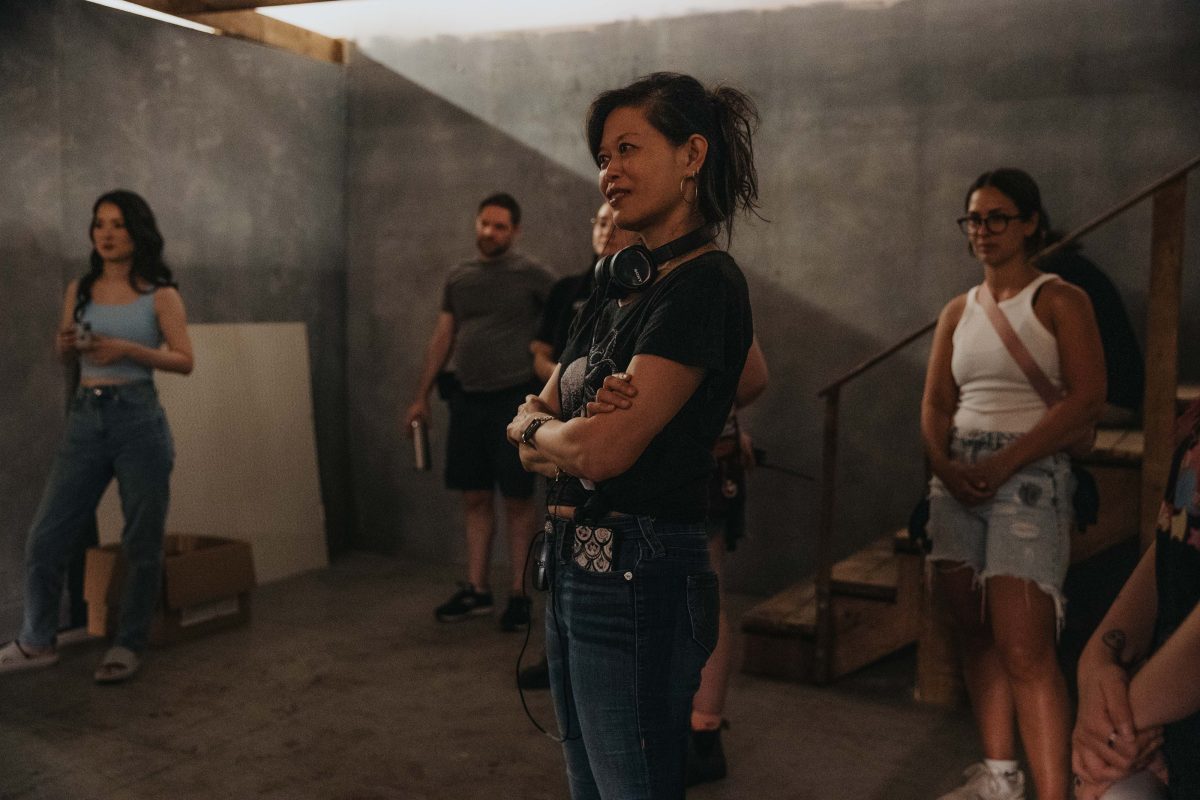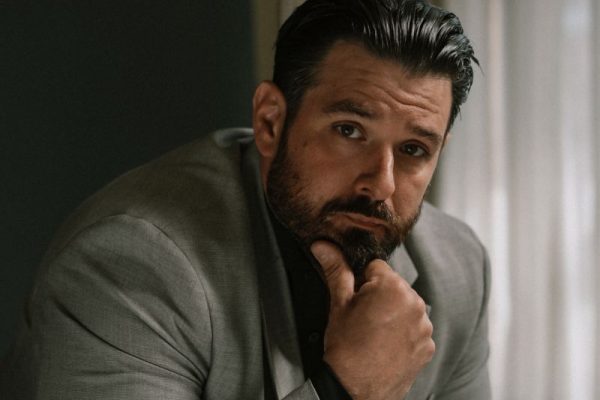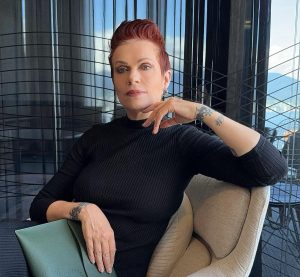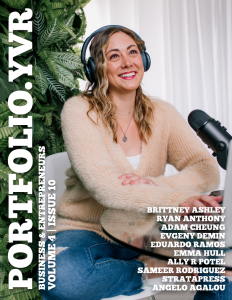Karen Lam has worked full-time in the film and television industry since 2000, beginning her career as a producer and entertainment lawyer. She was one of the architects of the British Columbia tax credit program before joining PwC to create tax shelters for United States studio clients. Transitioning from finance to storytelling, she has since written and directed ten short horror films, three music videos, a web series for TELUS, two seasons of the true crime series Very Bad Men for Discovery+, and five feature films, including Stained (2010), Evangeline (2013), and The Curse of Willow Song (2020).
The Curse of Willow Song premiered at the Vancouver International Film Festival, winning Best British Columbia Feature Film, with Lam receiving the Leo Award for Best Director in 2021. She has also written for SYFY and Netflix on the premiere seasons of Van Helsing and Ghost Wars, contributing to the creation of key characters. In 2021, she directed Bring It On: Cheer or Die, which premiered on SYFY and is available worldwide.
Most recently, Lam directed two 2024 projects based on her original scripts: Armageddon Road and Mrs. Chang’s Perfect Teeth, both set for international distribution in 2026 following festival premieres.

THE BUSINESS.
Black Opiate Entertainment is a Vancouver-based production company dedicated to creating stylish, elevated genre feature films and true crime documentary series. With a mission to captivate the imagination and deeply engage audiences, the company pushes the boundaries of filmmaking across both fiction and nonfiction. Black Opiate seeks out unusual stories that are often dark but always entertaining, while prioritizing strong female voices and diverse perspectives in front of and behind the camera.
The company was formed through the merger of Karen Lam’s Opiate Pictures and Kate Kroll’s Black Moon Media. Together, Lam and Kroll bring decades of film and television expertise, emphasizing prestige genre filmmaking that explores the darker corners of human experience. Their work spans chilling, original fiction and gripping real-life investigations.
Lam and Kroll first collaborated in 2013 on the Disney+ Investigation Discovery true crime series Very Bad Men, where Lam served as Showrunner and Kroll as Production Manager. Nearly a decade later, they reunited for the psychedelic dark comedy feature Armageddon Road, a film that innovatively combines volume wall technology with practical miniatures.
Black Opiate Entertainment represents the seamless fusion of two creative visions, overseeing every stage of production while delivering bold, distinctive stories to audiences worldwide.
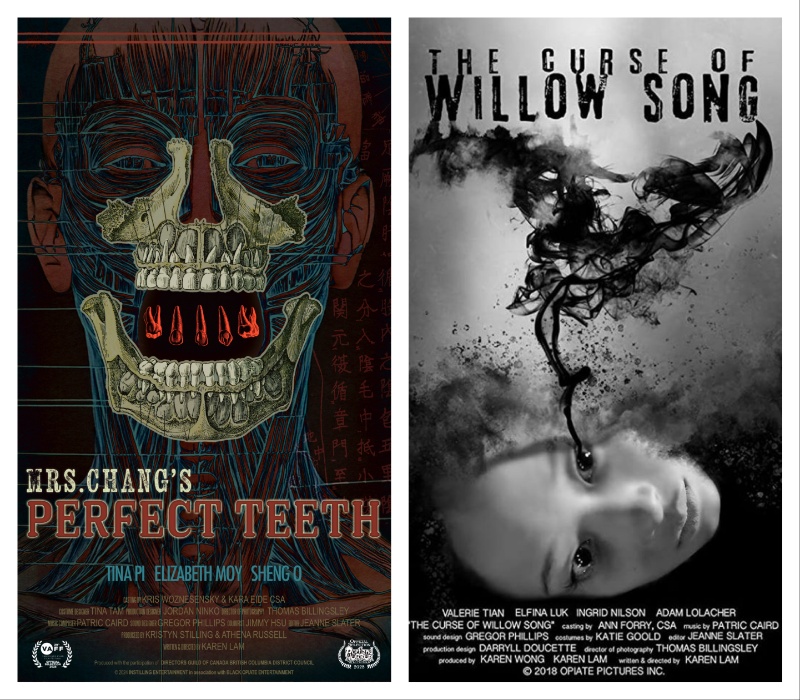

IN HER WORDS.
“When I first recognized my entrepreneurial spirit, it was not the result of a single moment but rather a product of nurture. Growing up in Brandon, Manitoba, I learned early that nothing happened unless I made it happen. In high school, most of us had two options: work at McDonald’s or create a job for ourselves. I chose the latter, making a small living from my creative skills. I drew pencil portraits of teen idols for friends, charging $20 each when minimum wage was only $5 per hour. I also worked as a paid piano accompanist for local university music students, and even wrote papers for classmates before the era of AI. Looking back, I can still sketch Simon LeBon with some accuracy if pressed. These small but meaningful experiences shaped my understanding that I could build opportunities rather than wait for them.
The inspiration for my first big idea came from being anything but a popular kid in school. I had a tight-knit group of friends who became my co-conspirators, and much of my entrepreneurial drive came through rejection or failure. One defining moment was being asked to draw the cover of our high school newsletter. My drawing, by today’s standards quite tame, was considered inappropriate and I was suspended. Supported by my father, who fought on artistic freedom grounds, I refused to revise my work. Instead, I doubled down and created my own newsletter with my friends, complete with the original drawing. It may have earned me another suspension, but it became my first zine. That experience taught me to stand by my convictions and lead when no one else will.
One of my most memorable early business experiences came during my articling year in law. By then, I had already pivoted several times—from music to fashion design, and then into law. I worked tirelessly, but when I was not offered a permanent position, I felt lost. After months of uncertainty, I found myself at Creative BC as in-house legal counsel. Six months later, the managing partner from my old firm invited me to lunch and admitted he believed keeping me in law would waste my “creative and entrepreneurial spirit.” His words reframed what I thought was rejection into the greatest gift: permission to follow my true path. Looking back, every setback has been a blessing, and failure has often been the door to my rightful opportunities.
My entrepreneurial journey has evolved through both choice and necessity. I began in film as someone who wanted to produce and support other creators. My early work at Creative BC instilled in me a strong belief in Canadian content and cultural identity. However, when every project I was producing stalled, I turned to writing and directing. A short script, The Cabinet, was selected by the National Screen Institute, launching me into directing. My first feature, Stained, was a financial and critical failure, yet it became the catalyst for my voice as a filmmaker. With what little money I had left, I created the short Doll Parts, which went on to win awards worldwide and ultimately financed my next feature, Evangeline. From there, The Curse of Willow Song and eventually a studio film, Bring It On: Cheer or Die, followed. What once looked like devastating setbacks became stepping stones.
As a filmmaker, I always juggle multiple ventures. I am usually writing one project, raising financing for another, and working on contract for someone else. The industry is volatile—audience habits shift, theatrical screens disappear, and funding gets cut—so survival requires momentum. At any given time, I have four or five projects in development, while also mentoring emerging filmmakers, lobbying for industry support, and contributing to training programs.
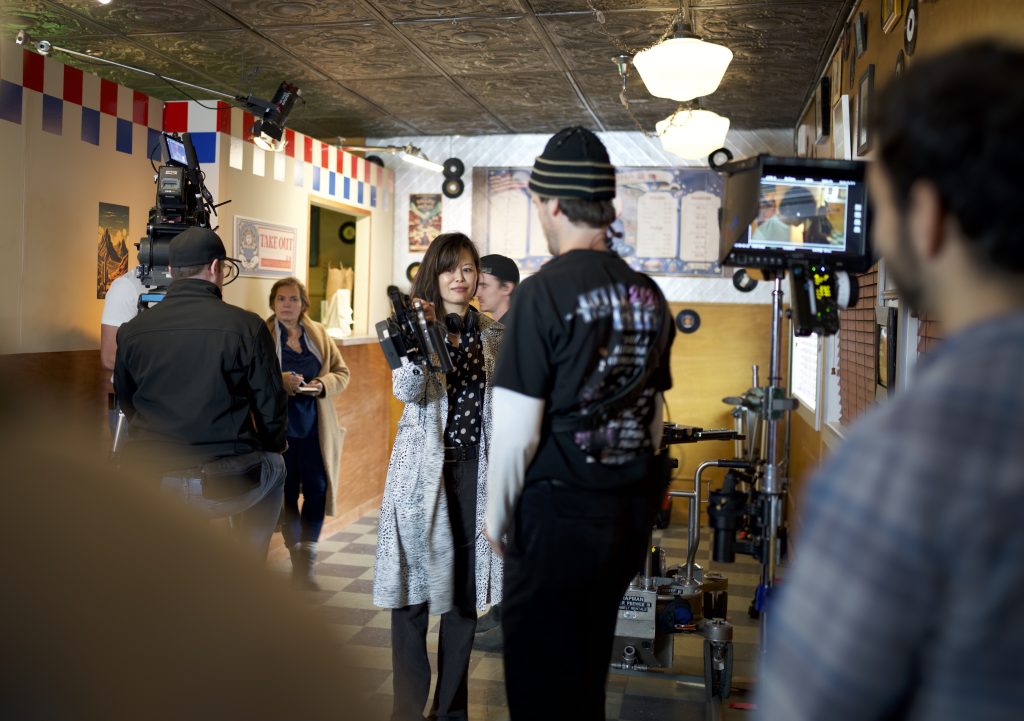
Once I gained confidence in my vision, the next step was scaling my work through collaboration. I co-founded Black Opiate Entertainment with my producing partner, Kate Kroll. Together, we produced Armageddon Road, a surreal road trip set in 1970s Las Vegas. Written in 2014 after my father’s passing, the story explored apocalypse, fate, and human free will. At the time, its themes felt distant. By 2024, they felt eerily prophetic. With new film technology and overwhelming community support, we brought the film to life. The experience reminded me that timing and persistence are everything in our industry.
Pursuing a career in film has required sacrifices, particularly in terms of personal balance. Film is not only a business but a calling, one that demands constant energy and commitment. When I am writing or in production, everything else falls away. Hobbies like textiles or music become rare luxuries. I sometimes joke with my financial advisors that I will probably die on set—and honestly, I would consider it a fitting end because it would mean I got another story into the world.
There was not one single moment when I knew my business would succeed. Success, for me, has been incremental. It reveals itself in unexpected ways, such as seeing my website redesigned and realizing the breadth of my achievements. Or hearing that one of my films is studied in universities in Venezuela, Ireland, Singapore, or Vancouver. Or when a friend’s colleague in Guatemala casually mentions he loves The Curse of Willow Song. Those moments remind me that while my films may not explode at release, they resonate deeply and find their audiences over time.
Mentorship has been the cornerstone of my career. From Sharon McGowan, who taught me the basics of producing, to Wayne Sterloff at Creative BC, who gave me my first professional foothold, to Tim Gamble, who financed my debut feature, each mentor has shaped my path. Lynn Booth took a chance on me as a series director, while my agent, Rena Zimmerman, has always given sound guidance. Above all, Rachel Talalay has been my guiding star, breaking barriers and proving that fearless women directors have a place in the industry. Alongside mentors, my creative team—cinematographer, editor, composer, designer, sound designer, and colourist—have been with me since the beginning. Their loyalty and talent are the foundation of everything I do.
When I reflect on how my leadership style and vision have evolved, I recognize that I once believed I had to present myself as a dragon lady in order to be taken seriously. In the early years, I made tough decisions without hesitation and did not mind being disliked for unpopular stances. On set, I rarely cracked a smile, which was the opposite of my natural personality. Over time, however, my confidence grew, and I no longer needed to posture. I learned that creative management is still management, and that I set the tone from the top. My approach now is to share successes with my team while personally accepting the setbacks. My goal is to create an environment where everyone performs at their best, where problems are identified early and solved before they escalate.
To aspiring entrepreneurs, my advice is simple: be ready to pivot constantly and never fear the word “No.” The entertainment industry is a chasing industry where buyers try to predict trends based on last year’s success. Formulas dominate, and risk mitigation often overrides originality. Yet, the truth is that audiences are hungry for authenticity. My career has thrived for nearly three decades because I have kept innovating while staying true to my values. If you protect the story and serve it well, the right audience will always find it. That belief has been my North Star.
At the heart of my business today is a renewed focus on community and experience. After years of isolation, audiences crave shared moments—laughter, music, and connection. With Armageddon Road, we are reimagining the film premiere as a psychedelic 70s boogie party, complete with disco, live energy, and collective celebration. My business partner, Kate Kroll, and I want to take this model across Canada, bringing films to cities that often get overlooked and making each screening an event. To achieve this, Black Opiate Entertainment requires financing to produce a slate of genre films back to back. This strategy will keep our crews employed, streamline post-production, and roll out films efficiently through a dedicated distribution channel. What we need are the resources to market effectively, build our audience base, and deliver homegrown entertainment that resonates deeply with Canadian communities.
Looking ahead to 2025 and 2026, my vision is to contribute to rebuilding a strong domestic Canadian film industry. For too long, Canada has served as a backlot for other countries’ stories. We have the talent, the resources, and the artistry to tell our own stories and to place them centre stage. My legacy, I hope, will be one of amplifying Canadian voices and creating a vibrant cultural identity that reflects who we are. If my work helps strengthen the fabric of our film community and ensures that Canadian stories take their rightful place on the world stage, then I will have achieved what I set out to do.”
Author Profile

- This story is created in collaboration between Helen Siwak and the featured subject. As the founder and publisher of Portfolio.YVR Business & Entrepreneurs Magazine, Helen works closely with entrepreneurs to share their paths of innovation, resilience, and growth. Each story in this series is co-developed through interviews and first-person insights, blending authentic voices with Helen’s editorial expertise to highlight the remarkable individuals shaping British Columbia’s business landscape.
Latest entries
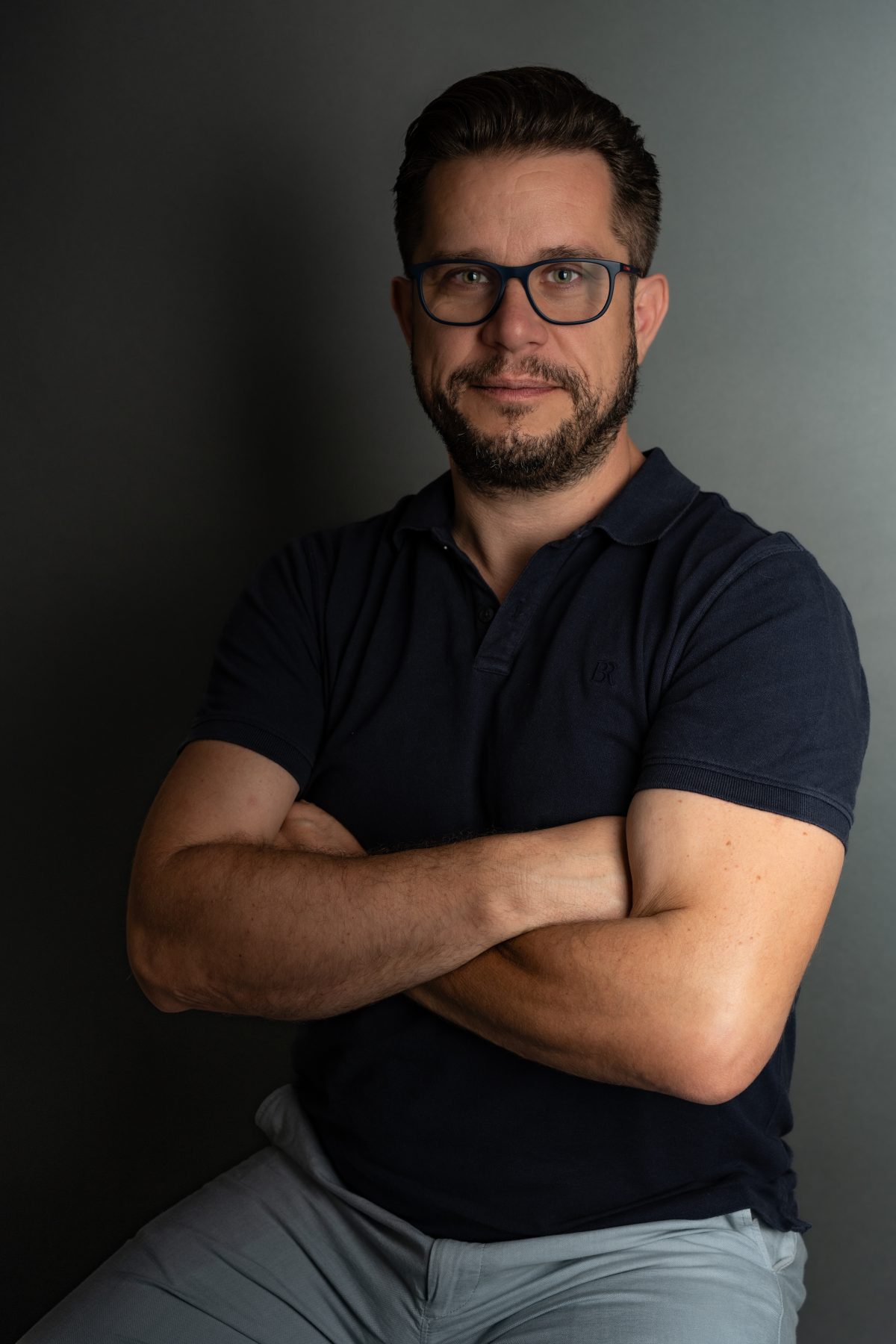 People of Portfolio.YVRFebruary 23, 2026Marko Sarunac Announces QRbolt Achieves GS1 Canada Qualified Solution Provider Status
People of Portfolio.YVRFebruary 23, 2026Marko Sarunac Announces QRbolt Achieves GS1 Canada Qualified Solution Provider Status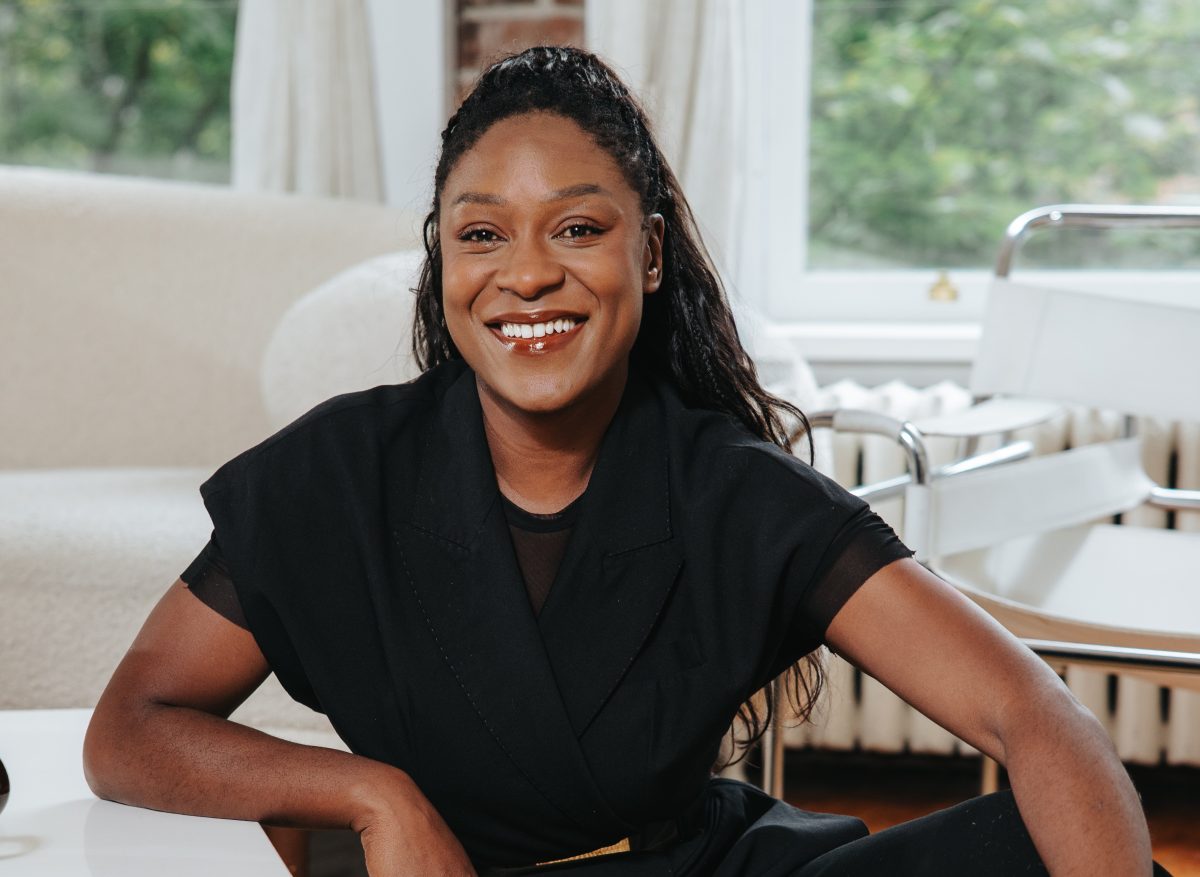 PORTFOLIO.YVRFebruary 19, 2026Ally R. Potel: From Observation to Impact, Leading Thoughtful Experience Design Through Flyberry Group Inc.
PORTFOLIO.YVRFebruary 19, 2026Ally R. Potel: From Observation to Impact, Leading Thoughtful Experience Design Through Flyberry Group Inc.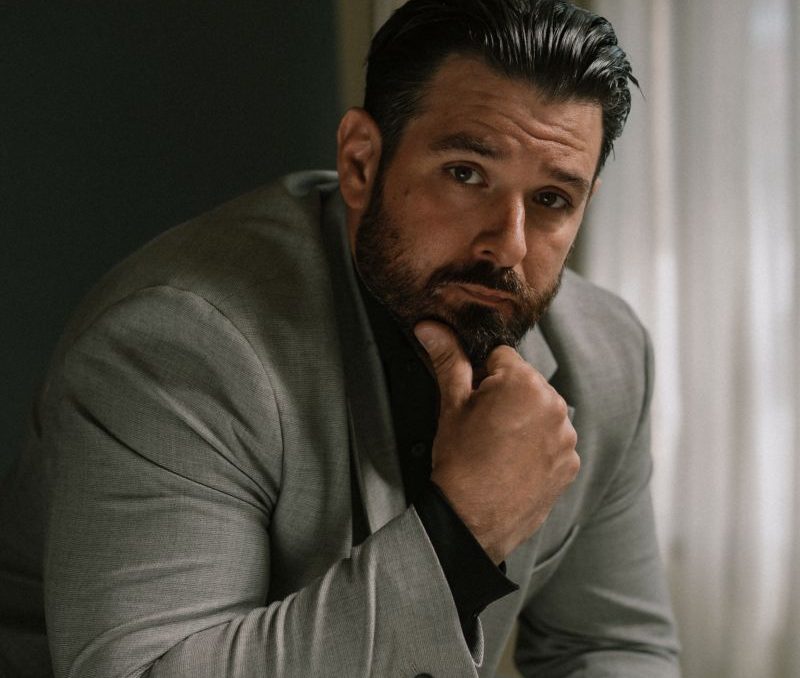 PORTFOLIO.YVRFebruary 19, 2026Ryan Anthony: Where Strategy, Sales, and Human-Centred Leadership Converge at Outcomes. Not Ideas.
PORTFOLIO.YVRFebruary 19, 2026Ryan Anthony: Where Strategy, Sales, and Human-Centred Leadership Converge at Outcomes. Not Ideas. PORTFOLIO.YVRFebruary 18, 2026Evgeny Demin: Building a Versatile Visual Practice Through Demin Photography
PORTFOLIO.YVRFebruary 18, 2026Evgeny Demin: Building a Versatile Visual Practice Through Demin Photography
